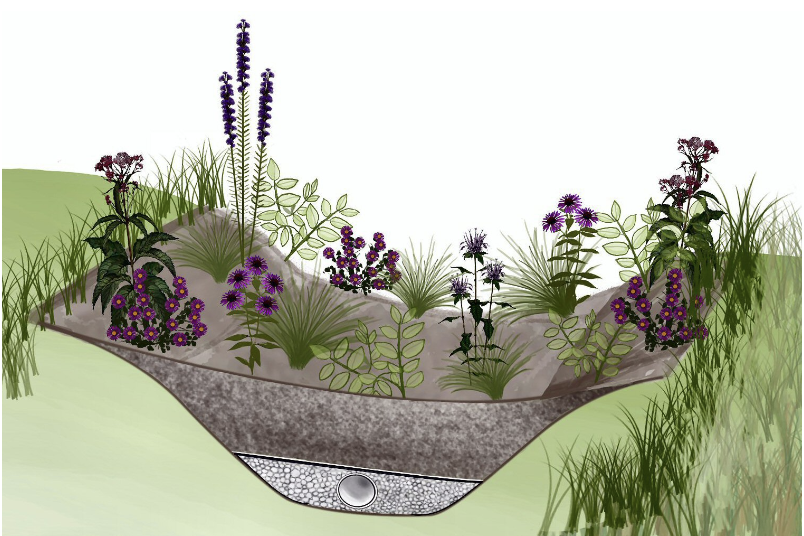Our Bioswale Trail Restoration Program modifies our two bioswales utilizing ecology-oriented design to create a beautiful space for practicing mindfulness and practical use of protecting against stormwater flooding and pollution. We are also incorporating workforce training and education around stormwater management.
Bioswale Trail Habitat Restoration
Bioswales help waterway pollution due to urban runoff by absorbing 30% more stormwater into the ground compared to conventional lawns. They reduce 70% of surface water pollution that originates from stormwater runoff.
The two bioswales on campus have been essential for REAP Center these last two winters because of the intense rainstorms that have passed through. We are enhancing the bioswales capacity by removing invasive species, building-up the soil, and planting California native plants. A trail runs through the bioswale, creating a space where community members can learn about bioswales as a regenerative practice, as well as enhance one’s holistic connection to our environment and mental well-being.
The soil, mulch, and stones in the bioswale filter out pollutants as the rainwater slowly seeps into the ground, which helps reduce the impact of stormwater runoff and flooding in our communities.
REAP seeks to promote both community engagement through workforce development and education about habitat restoration. Our bioswale program provides a pathway for skill diversification about bioswale management and maintenance of green infrastructure projects.

Where we are now
REAP Climate Center has received generous grants from Saving Birds Thru Habitat and San Francisco Office of Economic and Workforce Development to work towards the Bioswale Trail Restoration Program. We are in the process of restoring the trail that goes along one of our bioswales, and improving the soil health in the plantar beds adjacent to the bioswale.
We are grateful for the East Bay Circle of Men’s help on March 23, 2024 in restoring part of our trail. REAP is offering an internship opportunity through a collaboration between the Native American Health Center, San Francisco Office of Economic and Workforce Development, and Pacific Coast Community Services. As part of their internship, they will be getting hands-on experience in ecologically-minded work by assisting in the Bioswale Trail Restoration Program and other on-campus projects.
Our Bioswale Trail Habitat Restoration is an ongoing project, we welcome individuals and groups to contribute to our Bioswale program and its mission in any capacity. To learn more about how to contribute, check out our Volunteering and Partners page!







